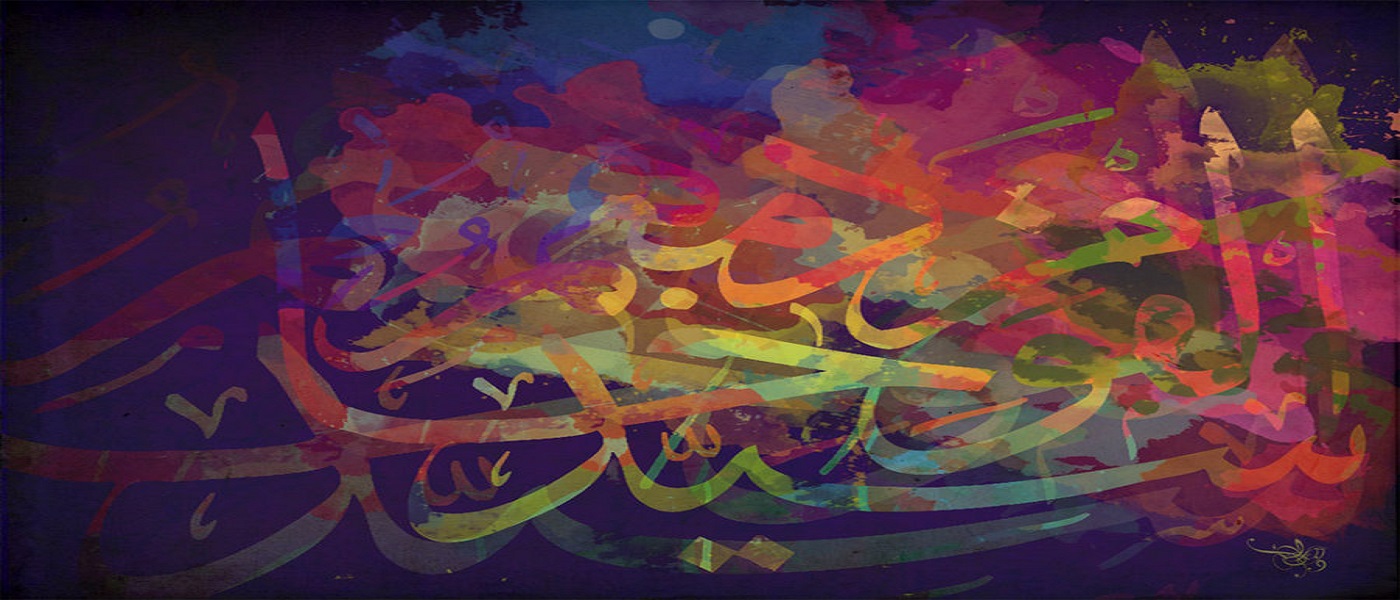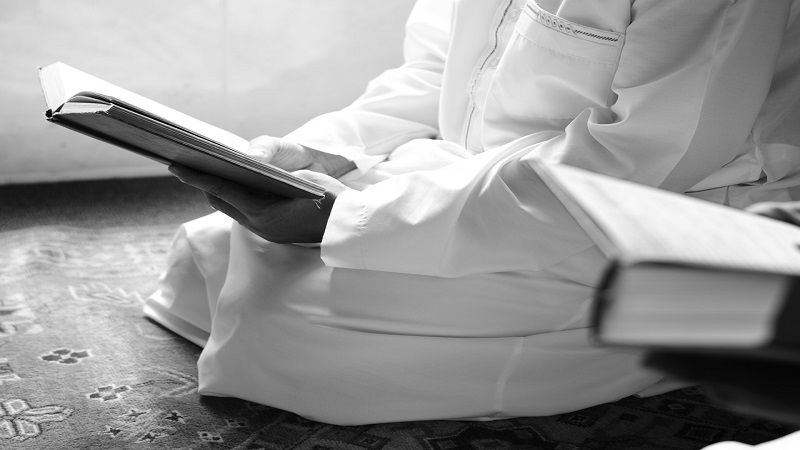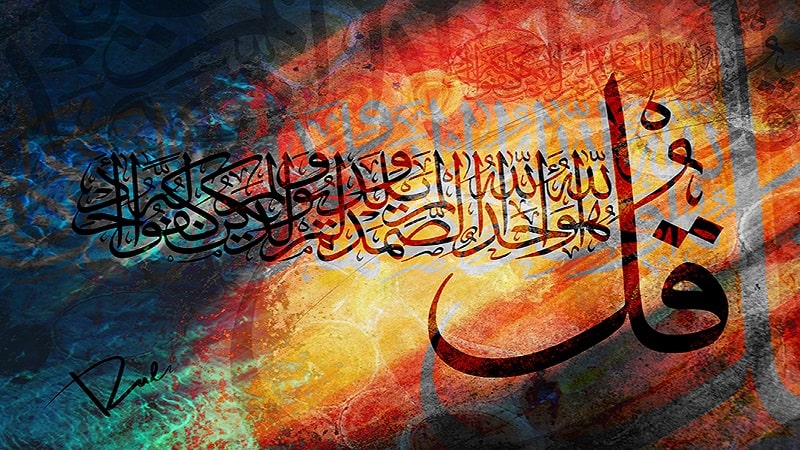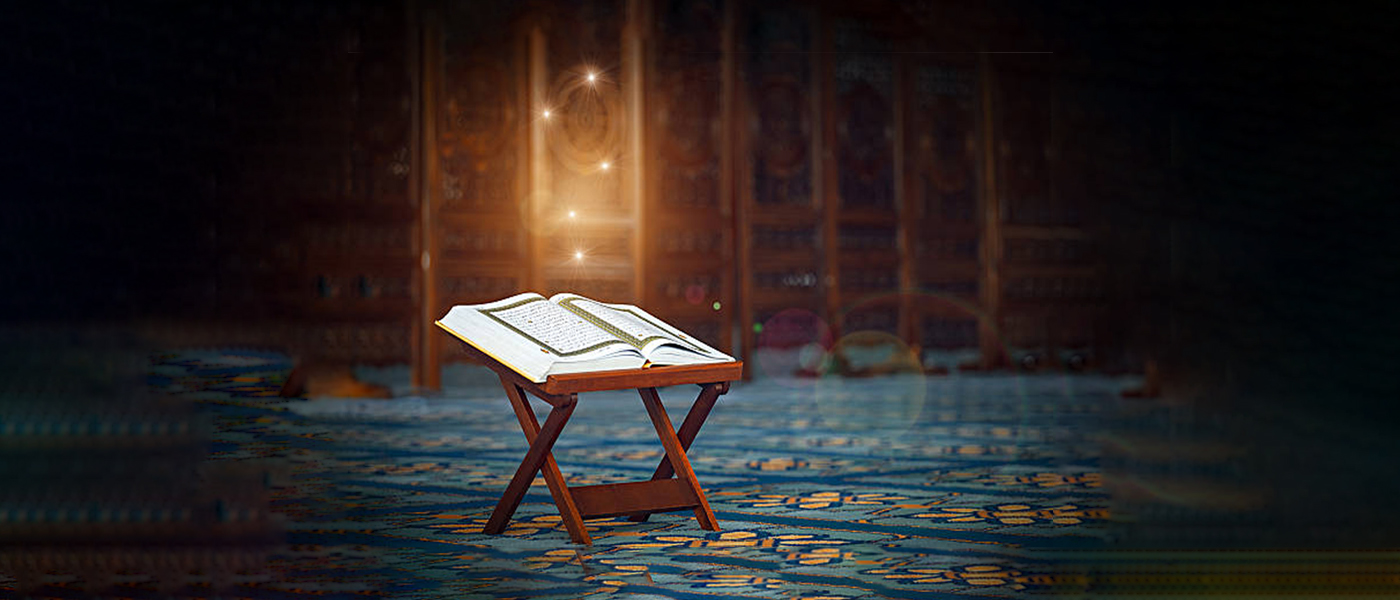

What Is the Difference Between the Words “Islam”, “Islamic”, “Muslim”, “Arab” and “Muslim believer”?
Knowing themselves as the true Muslims and real Arabs, ISIS wanted to establish an Islamic State in which Islam rules. They attacked thousands of places several times, held many as slaves, mostly women and children, and murdered thousands, whether army forces or ordinary people. Although the focus of their activities was in Iraq and Syria, surely you remember what they committed in France and other countries far from Iraq and Syria. On their opposite side were Iraqi and Syrian forces who were also Muslim and Arab and finally overcame ISIS.
Two groups of Muslims are in war. Which side was true? We shed light on some terms to clarify the issue.
Arabs
The last prophet (PBUH&HP) was an Arab and began his mission in an Arab country. The language of the Quran and Islamic rituals is Arabic, too. This has led to the fusion of terms such as Islam, Muslims, and Arabs. But there are about 1.8 billion Muslims and about 400 million Arabs in the world. So, not all Muslims are Arab. Like anyone else in the world, Arabs can choose their religion. There are Arabs with religions other than Islam or even ethnic Arabs. So not all Arabs, but many of them, are Muslim.
Muslims
Anyone who believes that: 1. there is no true god but Allah, 2. Allah has sent prophets to guide humankind, and 3. the day of judgment is true and will come, and pronounces the testimonies of faith (Shahaadatain) is a Muslim [i].
These are the gates to the world of rationality and peace. The world designed for a perfect version of life; in which no room has been arranged for violence. But ISIS forces, who claimed to be Muslim, oppressed many countries and two of them in particular and killed many innocent people. They had not tasted faith; they only used Islamic coverage to reach their goals.
You can find some pictures of ISIS dead forces with a spoon in their pocket. They believed that after their death, they will meet Prophet Muhammad (PBUH&HP) and will eat with him in heaven. Poor fools! I think if they did not die on time, they would not catch that meal and they had to wash the dishes.
Therefore, we should differentiate between a Muslim and a Muslim believer.

A Muslim Believer
“The Bedouins say: We have faith. Say: You do not have faith yet; rather say: We have embraced Islam; for faith has not yet entered into your hearts.” (49:14)
Any believer is a Muslim, but not all Muslims are believers.
Saying some words turns you into a Muslim and the rules of Islam runs for you. But the faith is saying what you believe by heart and showing this in your deeds. So, having faith is a higher stage after accepting Islam. A Muslim believer tries to be fully acquainted with Islam and the logic behind its rules and adapt every aspect of life with Islamic teachings.
Islam
The nature of all divine religions has been the same, i.e., surrendering to God and obeying Him in all aspects. There have only been little differences in some formalities. Like other religions, although Islam emerged in a particular locality, it was not restricted to that.
Verily, this Qur'an is a reminder for humankind throughout the world. (81:27)
The religions and instructions brought by prophets to people were in accordance with the capacity and level of understanding of different eras. But Islam is the last religion and was brought by the last prophet (PBUH&HP)[ii]. There will be no other religion after that. So, Islam must be an all-inclusive religion, containing all the necessities of human beings until the end. Islam is the continuation of the previous religions and completes them.
It has been traditional for God to appoint a religious leader for people at all times to guide them and clarify the Devine instructions.
Prophet Muhammad (PBUH&HP) has marked the correct path of Islam forever in one of the most famous and important Islamic narrations (thaqalain): “Verily, I am leaving behind two precious things among you: The Book of God and my kindred, my household. As far as you take hold of these two, you will never go astray. For indeed, the two will never separate until they come to me by the Pond (of al-Kawthar on the Judgement's Day).” [1] Prophet Muhammad and the twelve Imams (AS) after Him are leaders of Islam. But now that the twelfth Imam is absent, how should we determine the correct path?

Pure Islam
Three sources to the pure Islam;
Islam 1: Quran and authentic narrations from Imams.
Islam 2: Interpretations of Islamic jurisprudents of Islam 1.
Islam 3: The manner of Muslim public.
If we base our opinion towards Islam on Islam 3, it will result in a many-colored or contradictory type of Islam; because we observe different beliefs and customs in Muslim nations.
The best way is following the Islamic jurisprudent who are best familiar with Islam and can take us as near as possible to the truth of Islam.
Islamic
Anything belonging or referring to Islam which agrees to its basis can be called Islamic. It can be an Islamic government, an Islamic rule, Islamic food, etc.
The actions of nations, groups, and important figures claiming to be Muslim should not form our opinion about Islam. We should be fully familiar with Islam and based on this recognition, decide if something is Islamic or not.
Imam Ali (AS) says: “Truth is not recognized by figures; Know the truth, you will recognize its followers.” [2]
Notes:
[i]. See “The Islamic axioms”
[ii]. See “Is Muhammad (PBUH&HP) the Last Prophet?”
References:
- Wassail Al-Shi’a, v.27, p.34; Bihar Al-Anvar, v.2, p.100
- Bihar Al-Anvar, v.40, p.126
Share This Article

4 Points Proving the Quran to Be a Miracle
Prophethood is a sublime status granted only to those who are chosen. A prophet deals with the heart and souls of humans; it is, therefore, a delicate matter to believe in the one who claims prophethood. Hence, there should be a sign that lets people recognize a real prophet from a fake one; that's "miracle." A "miracle" is an extraordinary act or event that no other human, from the first to the last, can perform it or cause it to happen, except a prophet. It can be neither explained by natural or scientific laws. For Prophet Muhammad (PBUH&HP), the Quran is known as an everlasting miracle that is the most outstanding of Prophet's (PBUH&HP) miracles. The question is: why the Quran is considered as a miracle? Let's find out the reasons.
1. The Quran Is Unique in Style and Inimitable
The Quran is revealed with great eloquence and fluency to convey the message. Precise, poetic, targeted, and meaningful terms used in the Quran are such that no weakness of expression can be found in any of its Ayats. In fact, the words are chosen such that they express the desired meaning in the best way possible (Fasaha) with the minimum usage of words (Balaqa). And, these are features that scholars of Arab literature have noticed in every chapter of the Quran [1].
What makes the Quran a miracle in this regard is that, until the present, no one has been able (and no one will be able) to bring even one short Surah similar to that of this holy book. A Surah that could express the highest scientific facts in simple, comprehensible words and describes different aspects of a scientific matter as clearly as possible. This is an issue that has already been addressed in the Quran: "And if you are in doubt concerning what We have sent down to Our servant, then bring a Surah like it, and invoke your helpers besides Allah, should you be truthful." (2:23). There is no historical account of those who succeeded in defeating this claim of the Quran. If there existed any, those who have always challenged the origin of the Quran should have recorded it.
2. The Quran has been Brought by a Prophet Who Was Uninstructed (Ummi)
According to both historical records and the Quran, Prophet Muhammad (PBUH&HP) was Ummi before he was chosen as a messenger of Allah Almighty; he hadn't been taught by any teacher to read and write 1]. "You were not able to read or write before the Quran was revealed to you; however, the followers of falsehood would have tried to confuse the matter" (29:48). Therefore, the Quran that its words are in extreme eloquence and fluency and reveal sophisticated concepts cannot be Prophet's (PBUH&HP) word. Hence, it is a divine work gained through revelation, a "miracle."
3. Scientific Facts Revealed by the Quran
The Quran is not a book of science or a specialized book, nor has it aimed to concentrate on scientific facts. However, these kinds of information are stated in the Quran to demonstrate the wonders of creation and Allah Almighty's glory.
In this regard, the creation of humans is described in detail in the Quran (23:12-14). In the first step, the human being was fashioned from clay. Other measures include the creation of man from spurting water, a drop of semen, the sperm fashioned into an embryo, this embryo fashioned into a shapeless lump of flesh. From the lump of flesh, fashioned bones, clothed the bones with flesh and then created the consanguinity and affinity [2].
The movement of the earth is another fact mentioned in the Quran: "It is Allah who raised the heavens without any pillars that you see" (13:2). In this verse, it is mentioned that there exist invisible supports that raise up the heavens. These supports are now referred to as the gravitational and other unseen forces in the universe. This scientific fact that is valid today was unknown in that era, and even one thousand years later when Galileo explained this fact and was sentenced to death. That's why it is not explicitly stated in the Quran; otherwise, it would have been banned [1].

4. Accurate Predictions
Some accurate predictions are among the verses of the Quran. This proves that it has been descended from an absolutely knowing source that can report the unseen.
As an example, in the time of Prophet Muhammad (PBUH&HP), Mecca was controlled by polytheists for a while. They did not let Muslims enter the city and do the Hajj rituals. Then, Prophet (PBUH&HP) dreamed that he succeeded in performing Hajj with his companions. This was confirmed in an Ayah: "Certainly Allah has fulfilled His Apostle's vision in all truth: You will surely enter the Sacred Mosque, God willing, in safety, with your heads shaven or hair cropped, without any fear." (48:27). In the next year, this dream came true.
In another case, the Quran has predicted that: "Byzantium has been vanquished in a nearby territory, but following their defeat, they will be victors in a few years." (30: 2-4). Some years later, both predictions came true.
From what has been discussed above, it can be deduced that the Quran cannot be written by a human being. It is undoubtedly from a superior all-knowing all-wise source, which is Allah Almighty. Consequently, the Quran can be considered as one of Prophet Muhammad's (PBUH&HP) miracles, the greatest one, of course.
References:
- Quran
- H. El-Ramady, et al., "Soils and Human Creation in the Holy Quran from the Point of View of Soil Science," Env. Biodiv. Soil Security, vol. 3, pp. 1- 9, (2019).
Read More

12 Scientific Facts in The Quran Discovered Centuries Later: Part 2
In the first part of this article on the scientific facts in the Quran, some astronomical facts mentioned were discussed. Here, we review some interesting facts about nature, including some points about mountains, the origin of life, the position of the sky and the seas merging together.
5. Mountains with Deep Roots under the Ground
The Quran has used the word stakes to describe mountains: “It is He who has spread out the earth and set in it firm mountains” (13:3), “Did We not make the earth a resting place? and the mountains stakes?” (78:6-7). It means that mountains have deep roots under the ground surface. Mountains do have deep roots, and the word stakes is an accurate description for them. This fact was discovered only in the latter half of the 19th century. The presence of the mountains on the ground also helps to stabilize the crust of the earth [4]. They also hinder the earth-shaking. “He cast in the earth firm mountains lest it should shake with you” (16:15). This is known today under the theory of plate tectonics since the late 1960s [1].
6. The Origin of Life according to the Quran
Life of a human being starts in water. From conception to birth, a fetus is protected and cushioned in a sack of water. A human body needs water in all its cells, organs, and tissues to help regulate its temperature and maintain other bodily functions. Plants also need enough hydration to perform photosynthesis, while animals consume water to carry out cell activity. Overall, water is an essential element for all living beings on earth. This fact was discovered only after the invention of the microscope. Now we know that all living things are made up of cells which are mostly made up of water. This fact has already been stated in the Quran: “We made every living thing out of water? Will they not then have faith?” (21:30).
7. The Sky as the Protector of the Earth
The sky plays several essential roles as the protector of the earth, such as filtering out the lethal rays of the sun. If there were no sky, the sun’s radiations would have killed off all life on earth. The sky also acts as a blanket around the earth, which protects the living things from freezing out by the cold just above the sky that is approximately -270°C. The greenhouse effect is another role that the sky plays. By warming the surface of the earth by means of heat retention, the sky reduces temperature extremes between day and night [2]. These protective roles of the sky were discovered by scientists in the 20th century. The Quran has mentioned this role of the sky as: “We made the sky a preserved roof and yet they are disregardful of its signs.” (21:32).
8. Where the Seas Meet
It has been discovered by the scientists that there is a barrier between the two different seas that meet. Hence, each of the seas has its own temperature, salinity, and density, like the Mediterranean Sea and Atlantic Ocean water. Despite large waves, strong currents, and tides in these seas, they neither mix nor do they transgress this barrier [3]. This phenomenon has been mentioned in the Quran as: “He merged the two seas, meeting each other. There is a barrier between them which they do not overstep.” (55:19-20). There is also a case where fresh (sweet) and saltwater meet. Here, the Quran talks about the existence of a forbidding partition along with the barrier: “It is He who merged the two seas: this one sweet and agreeable, and that one briny and bitter, and between the two He set a barrier and a forbidding hindrance.” (25:53). Modern science has discovered that in estuaries, where fresh and saltwater meet, there is a marked density discontinuity that separates the two layers. The salinity of this zone of separation (partition) is different from that of freshwater and that of saltwater. There is, therefore, the division of water in estuaries into three parts: freshwater, saltwater, and the partition [3].
Follow us on the last part of this topic to find out what the Quran has revealed about human embryonic development, clouds, and deep seas, and the creation of everything in pairs.
References:
Read More

